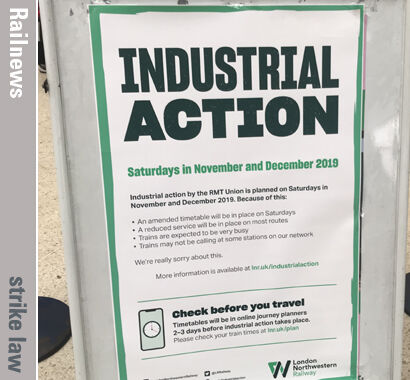A Bill is being presented to Parliament today which sets out a law restricting the proportion of people who may walk out during transport strikes.
The RMT has called for ‘the fiercest civil resistance possible’.
The new law will apply even if the strike was validly called under previous laws which oblige unions to hold membership ballots, give notice of industrial action and restrict picketing. The Bill is receiving its First Reading just after the RMT had announced further strikes in early November.
The Transport Strikes (Minimum Service Levels) Bill will make a certain level of service mandatory. Individual members of staff who defy the new law by joining the strike will lose their protection from automatic unfair dismissal, while unions will be open to claims for damages.
The level of service to be provided during a strike must be agreed between employers and unions and will apply for a period of three months. If the two sides cannot agree, the minimum service level will be decided by the Central Arbitration Committee, which is a tribunal of the Department for Business, Energy & Industrial Strategy. The Bill is expected to become law next year.
Prime Minister Liz Truss said: ‘Hardworking people and businesses should not be held to ransom by strike action which has repeatedly crippled our transport network this year.’
Transport secretary Anne-Marie Trevelyan said: ‘Strikes have affected nearly all of us over this last year – whether that means losing out on a day’s pay at work, having to close your business, missing vital medical appointments or stopping our children from getting to school.
‘It is vital that public transport users have some continuity of service to keep Britain moving and growing – this legislation will give everyone the certainty they need to carry on with their daily lives.’
RMT general secretary Mick Lynch responded: ‘This cynical piece of legislation outlaws effective legal industrial action on our railways.
‘It is an autocratic move from an increasingly despotic Prime Minister trying to cling on.
‘All democrats whether inside or outside parliament must oppose this draconian attempt to clamp down on the fundamental human right to strike.
‘RMT and the entire trade union movement will not accept unjust anti-union laws and I call upon all workers in Britain to mount the fiercest civil resistance possible, in the proud traditions of the chartists and suffragettes.’


